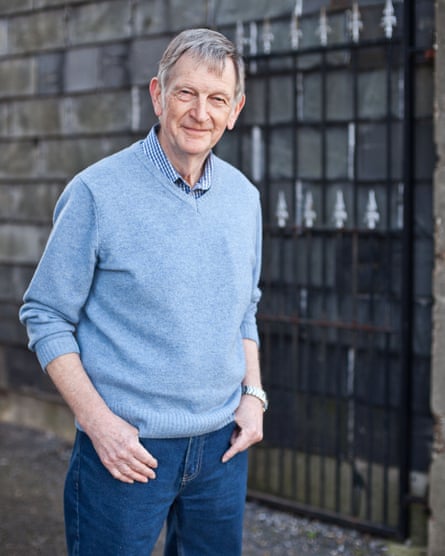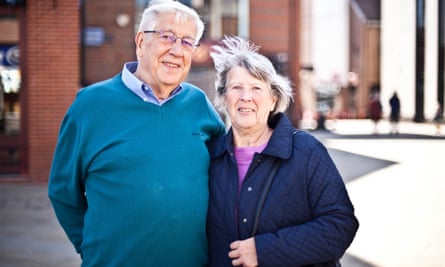Since the Brexit vote, the 48% who sought to remain have been demonised as a privileged elite attempting to subvert an authentic working-class revolt. “The working class have spoke!” crowed multimillionaire American citizen John Lydon, aka Johnny Rotten, recently. The referendum was a clash between the angry “millions of working-class people” and “prosperous middle-class homeowners in London”, declared the Sun. “Remoaners” are a clique formed of “citizens of the world” conspiring against the patriotic British working class, or so the story goes.
A confession: I also framed it that way. And it’s true that much of the referendum result can be attributed to working-class disaffection with an unjust status quo. I’ve been to Doncaster, one of the birthplaces of the Labour party, where traditional industries have given way to insecure and low-paid work; and to Barking and Dagenham, where a housing crisis has left many working-class residents struggling to get a comfortable, affordable roof over their heads. It is also true that only among middle-class professionals was there a majority for remaining in the European Union. But as a complete story of why this country is leaving the EU, it is too simplistic. That matters, not least because a singular, flawed narrative will increasingly be used to silence dissent in Britain.
Consider Fareham, the next stop on my mission to understand Brexitland. In this affluent Hampshire market town, more than 86% of the 111,600 residents are owner-occupiers – the national average is 64% – and the town has some of the lowest levels of child poverty in Britain. There are few migrants, so immigration cannot be said to be a local imperative. And yet 55% of prosperous Fareham’s residents voted to leave the EU – more solidly pro-Brexit than the national result. As for buyer’s remorse, with article 50 triggered, there is little evidence of that here.

As elsewhere, the result defied any predefined class dynamic and confounded the stereotypes. While Fareham is cast as part of an anti-establishment vanguard, Tower Hamlets – which has prevalent child poverty and two-thirds of whose residents voted for remain – is subsumed into the caricature of a pampered liberal elite. Most working-class Britons under 35 opted for remain, while most middle-class people over 65 voted for leave. Most working-class people who are white went for leave, most working-class people from ethnic minorities went for remain. Consider that the next time the Brexit press imposes its simplistic narrative on a complicated reality. Applying their logic, black supermarket workers and young apprentices form part of the privileged remoaner elite.
In Fareham, I meet Nick, a chirpy 54-year-old Tory-voting security designer with a shiny white Mercedes. Back in the 1980s, he was a striking trade union shop steward at the Portsmouth naval base. He voted out because of immigration (“sorry!” he says). But there are few immigrants in Fareham, so what’s your problem, I asked him. Isis, he replied. What’s that to do with the EU? “Close the borders down,” he said. “Make it a bit tighter.”

Ian Page, 72, is another lifetime Tory voter, save for a brief dalliance with New Labour. He worked in the computer and electronics industry before retirement and voted leave. “Distrust of Brussels,” he says. “I had no problem with immigration, it didn’t bother me at all.” Indeed, he resented the “very negative” immigration policies offered by the leavers. But he did it and he is upbeat. “I don’t have any fears about not getting a deal,” he tells me. “I think Europe needs us more than we need them.”
They were lied to like the rest of us. Never forget the sheer deceit of a leave campaign that promised £350m a week extra for the NHS. But I encounter few complaints of betrayal. Tony Coves, a 76-year-old former chartered loss adjuster at Lloyd’s, recalls the ads on the side of the leave bus: “That was a load of nonsense, we knew that. We still voted for it.”
The divisions here mirror those in other affluent communities. Sometimes disagreement is amicable, often not. Henry Palk, 79, was polishing windows that were once plastered with remain posters. He took me into his extraordinary wood-beamed 14-room house, which dates back to 1294. “Hitler would feel quite comfortable here with a lot of the residents,” he said irascibly. Palk says he has fallen out with some of his neighbours, not to mention a leave-supporting relative. His cousin telephoned each week, but when they spoke the Sunday after the referendum, that arrangement came to an end. Palk told him: “I’m sick of you, and I never want to hear from you again.” Then he hung up.

The likes of Fareham seen through a media lens offer certainty, but in truth the lines blur here as elsewhere. It suits the media barons to portray Britain’s divide as being between a patronisingly depicted working class and a privileged layer of snobs. But that hardly facilitates the intelligent discussion we now need. Of course the referendum result must be respected. But attempts to shut down any scrutiny, let alone dissent about a hard Tory Brexit, have to be resisted.
For the left, class politics is about who has wealth and power, and who doesn’t, and eliminating the great inequalities that define society. The populist right, on the other hand, denounces “identity politics”, while indulging in exactly that: transforming class into a cultural and political identity, weaponised in their struggle against progressive Britain. The left must be able to counter that approach with arguments that resonate in Doncaster and Thanet, and no less in towns like Fareham.









